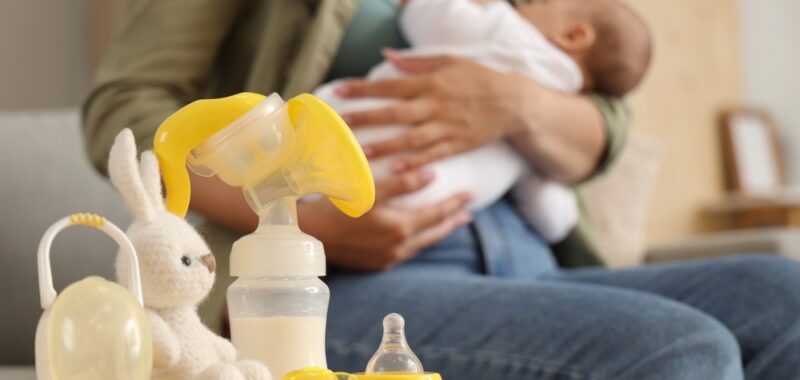Did you know? August 22nd marks World Plant Milk Day. Get ready for a creamy, non-dairy cheers! Once just reserved for soy, the list of alternate milk options now includes everything from macadamia to hemp to flax to rice milk.
But has anyone stopped to wonder why our milk craze, first ignited with the glass bottle deliveries of 1878 and now perpetuated with the bougiest of non-dairy creamy concoctions, has never fully and wholeheartedly embraced the original, actual milk made for humans. (Do I need to remind you all where it actually comes from?)
Though breastfeeding comes and goes as far as what is popular and promoted in mainstream media and even in mainstream medical settings, it has not consistently held its well-deserved place within mainstream acceptability.
One way to analyze this systemic oversight is through the lens of climate action.
People already get uptight about the mention that our diets need to change if we have any chance of slowing the rapidly deteriorating crisis that is our climate. But it’s true, and proven time and time again: in order to not be complicit in our role in climate change, we have to eat more plants and less meat, and specifically less beef and dairy. In a country that runs on hamburgers as a quintessential part of American culture, this bite of info is not easy to swallow, literally. And it’s consistently demonstrated that eating local isn’t good enough. Vegetables produced and transported from across the world still produce significantly less emissions than local, farm-to-table beef, lamb, or chicken.
It is also quite well documented that not only dairy but every step of infant formula production is a high-emissions process that can never compare to its zero-emissions alternative: breastfeeding. One analysis really put this in perspective: if breastfeeding were increased to medically recommended levels, the relative reduction in emissions would equate to the removal of up to 77,000 cars off the road each year.
This statistic should be enough to stop every climate activist in their tracks to wonder why we aren’t supporting breastfeeding efforts immediately and universally.
Yet somehow, breastfeeding is not often viewed as a legitimate climate solution that could be supported with policies and systemic improvements toward equitable access to human milk. I often rationalize this – with support from anecdotes shared by colleagues in the climate space – with the understanding that lactation is viewed as highly personal and a family-based decision that would be inappropriate to discuss in a climate policy forum.
But what if the real reason lactation isn’t seen as a climate solution is not that it’s too personal? What if it’s because it’s difficult to capitalize on?
With the news that our meat-eating country needed to become more plant-based, companies sprouted on every grocery aisle offering plant-based alternatives to everything from hot dogs to ice cream. Thanks to the ever-so-reliable engine of capitalism, we now have more options than ever to make the transition away from meat less painful, and it has worked.
So what about breastfeeding? Corporations have done a pretty good job doing what they do best and have successfully created a billion-dollar industry out of something that, by definition, requires no products, subscriptions, or tools. This has led to a disparity in breastfeeding access that is completely fabricated, based on the falsely marketed notion that in order to breastfeed “successfully,” you need specific (and expensive) pumps, bottles, pillows, creams, and clothes.
But even with all these accessories, it’s incorrect to compare the breastfeeding accessory industry to that of the formula industry, which clocks in at a whopping $47 billion per year and a long history of international human rights violations – that quite despicably have been actively supported by the U.S.
While capitalism often drives policies in our country, this is an exception where we will have to support cultural change and policy change in order for human milk to be equitably accessible.
So the question remains, are we willing to do it?
This August, don’t just cheers with your almond milk latte. Use your voice, your vote, and your power to amplify National Breastfeeding Month, and in particular, each week of August that represents the important fight for racial equity in access to this most fundamental right: Feeding your baby with your body.
Emily Little is a perinatal health researcher with a PhD in experimental psychology from the University of California, San Diego, and a graduate specialization in anthropogeny (the study of human origins) from the Center for Academic Research and Training in Anthropogeny. She can also be reached on LinkedIn and Instagram @nurturely.
Dr. Little uses approaches from psychology, anthropology, and public health to understand and prevent the root causes of disparities in perinatal and pediatric health. As the founder of Nurturely, she disseminates research to improve clinical practice through equity-centered training programs for health care providers.

